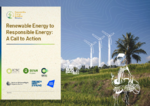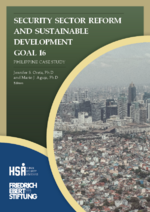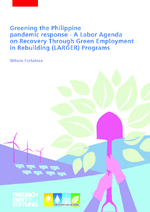
Renewable Energy Bootcamp (REBOOT)
The clock is ticking, and the message from recent climate reports is clear: humanity only has until 2030 to prevent a global climate catastrophe. The solution for this crisis is also clear: we need to transition away from fossil fuels and rapidly decarbonize our economy. Almost all nations have already set carbon reduction goals in Paris in 2015. The global community, through the Global Stocktake, has already expressed serious concern that impacts from the climate crisis are rapidly accelerating. So why are we not closing fossil fuel plants as fast as possible?
The answer is simple: energy has driven the massive economic growth that we have experienced since the Industrial Revolution. But with growing economies comes growing energy demand, especially in developing countries like the Philippines. Due to the pressure to rapidly meet this energy demand, fossil fuels remain tempting – and, some believe, unavoidable.
But we cannot choose between climate and development. What is the worth of development if the planet is dead?
We must change things if we are to survive.
The global energy transition towards 100% renewable energy offers a way out of this dilemma. But enabling this transition comes with its own set of very challenging processes. We need a collective understanding of the complexities surrounding the new energy system. We need living models that will demonstrate how low-carbon development can actually happen. And ultimately, we need to trigger systemic changes in our society's relationship with energy.
Energy is the driving force of a nation. It is the basic resource where everything comes from. But what happens if only a few have control over this basic resource? The present global energy crisis has shown how the misuse of control over energy can cause massive suffering. Our country’s energy experience also demonstrates this fact. Two decades of poor implementation of the Electric Power Industry Reform Act (EPIRA) has resulted in an energy system where the top 10 “energy oligarchs” own 70% of energy generation in the Philippines. Their stranglehold over our country’s energy contributed to our country’s status as having the third-highest electricity rates in Asia.
The renewable energy transition allows us to break free from this monopoly. Due to its decentralized and localized nature, renewable energy offers us a chance to break people's and communities' dependence on fuel imports or large companies. It is a chance for a power system that truly empowers the people. And it is our chance to address systemic issues that disproportionately affect marginalized sectors, like women.
However, accelerating this transition in the Philippine context comes with its own set of challenges. We must create living local models that will demonstrate how the energy transition can be embedded in our social and economic systems. We need platforms where new technologies can be piloted so that we can learn how energy will trigger systemic changes in our society.
We must take bold action and push this transition through. We have no time to waste. Let us work together towards a sustainable and equitable future for all.
If you have any inquiries, please don't hesitate to email Ms Pau Darroca, our Assistant Program Coordinator, at reboot.ph(at)fes.de.
Friedrich-Ebert-Stiftung
Philippines
Unit 2804 Discovery Centre #25 ADB Avenue, Ortigas Center 1605 Pasig City, Metro Manila Philippines
info.ph(at)fes.de









